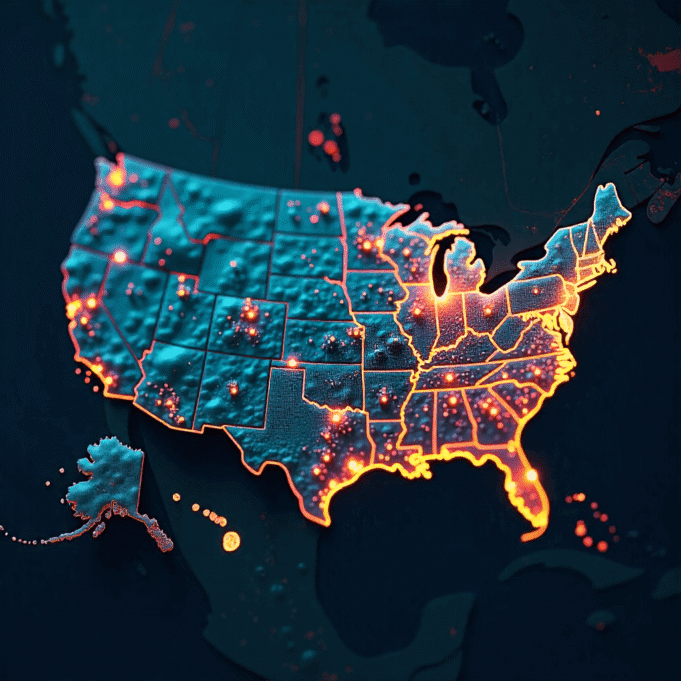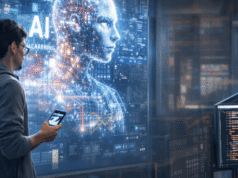Welcome to the brave new world of public health, where Big Brother isn’t just watching you – he’s analyzing your smartwatch data to predict the next pandemic. That’s right, folks: the future of healthcare is here, and it’s powered by algorithms that know more about your health than you do.
A groundbreaking review in the World Journal of Advanced Research and Reviews has unveiled how U.S. public health institutions are wielding data analytics like a digital scalpel, reshaping everything from disease surveillance to policy-making. It’s like Minority Report meets Marcus Welby, M.D., and trust me, it’s a lot cooler than it sounds.
Data Analytics: The Hidden Force Reshaping US Public Health
Remember when your doctor used to rely on a stethoscope and a hunch? Those days are as extinct as the dodo. Now, it’s all about crunching numbers faster than you can say “hypochondriac.” As lead researcher Babarinde puts it, “data is no longer just a tool for record-keeping; it is a weapon for saving lives.” And boy, are they locked and loaded.
Picture this: You wake up feeling a bit under the weather. Before you can even reach for the thermometer, your smartwatch has already alerted the CDC, cross-referenced your symptoms with millions of data points, and predicted the likelihood of you starting the next global pandemic. Okay, maybe not quite – but we’re not far off.
From Fitbits to Flu Forecasts
One of the coolest breakthroughs highlighted in the study is how our obsession with tracking steps and heart rates is actually becoming a public health superpower. Smartwatches, fitness trackers, and even experimental smart contact lenses are now part of a vast network of health surveillance.
Co-author Oluwatoyin Ayo-Farai explains, “These technologies are moving from personal health gadgets to public health infrastructure.” In other words, your Apple Watch isn’t just nagging you to stand up every hour – it’s potentially saving lives by contributing to a massive health data ecosystem.
AI: The New MD
But wait, there’s more! Machine learning models are now so embedded in health systems that they’re practically wearing white coats. These digital doctors analyze patterns, flag anomalies, and even build personalized early-warning systems for chronic diseases. It’s like having a tiny, hyper-intelligent physician living in your smartphone.
And when it comes to policy-making, big data is the new political consultant. Governments are using advanced analytics to measure the impact of health interventions across diverse populations. It’s evidence-based policymaking on steroids – minus the questionable side effects.
The Rise of the Health Data Ecosystem
This data revolution didn’t happen overnight. It all started with the seemingly mundane task of digitizing health records. But those electronic health records (EHRs) were like planting magic beans – they’ve grown into a sprawling, interconnected jungle of health data that’s changing the game.
Now, we’re seeing real-world applications that sound like science fiction. During the COVID-19 pandemic, hospital systems used AI models to predict ICU demands with eerie accuracy. It’s like having a crystal ball, but instead of mystical fog, it’s filled with zeroes and ones.
The Dark Side of the Data
Of course, it’s not all rainbows and perfectly predicted flu seasons. The review warns of challenges like privacy concerns, data security risks, and unequal access to digital health tools. After all, not everyone has a smartwatch that can diagnose their ailments before they even sneeze.
But despite these hurdles, the benefits seem to outweigh the risks. As Babarinde concludes, “The future of public health will be data-driven. The United States is showing what is possible, and the rest of the world must take note.”
So, the next time your fitness tracker buzzes, remember: you’re not just closing your rings, you’re potentially contributing to the next big breakthrough in public health. Who knew being a couch potato could be so revolutionary?
As we navigate this brave new world of health analytics, one thing’s for sure: the line between personal health and public health is blurring faster than you can say “HIPAA violation.” But if it means we can predict and prevent the next big health crisis, maybe it’s worth embracing our new data-driven overlords. Just don’t be surprised if your smartwatch starts nagging you to get a flu shot before you even realize it’s flu season.




